The Septembers of Tomorrow: Baby Name Trends Are Relentless and Dimensionless
The Internet is full of wonderful things. No matter what obscure hobby you get yourself into, there’s probably an online community out there with all the answers you need, the drama you don’t, and a cast of friendly strangers who have dedicated far more of their lives and have much stronger opinions on the deepest nuances of the topic than you have. It’s a humbling reminder of both what massive numbers of people there are in the world and just how weird they all are.
Two of the online communities I’m involved in are the calculator community and the quantified-self community. The first is a group of graphing calculator enthusiasts who pour their heart and soul into making games for an outdated device that teaches math. The latter obsesses over ways to measure everything about our daily lives and slap it on a graph. (So many people worry about Uncle Sam or Big Tech getting their grubby hands on our private data; meanwhile, some of us are out here thinking that our private data ought to be shared, analyzed, and made into art.)
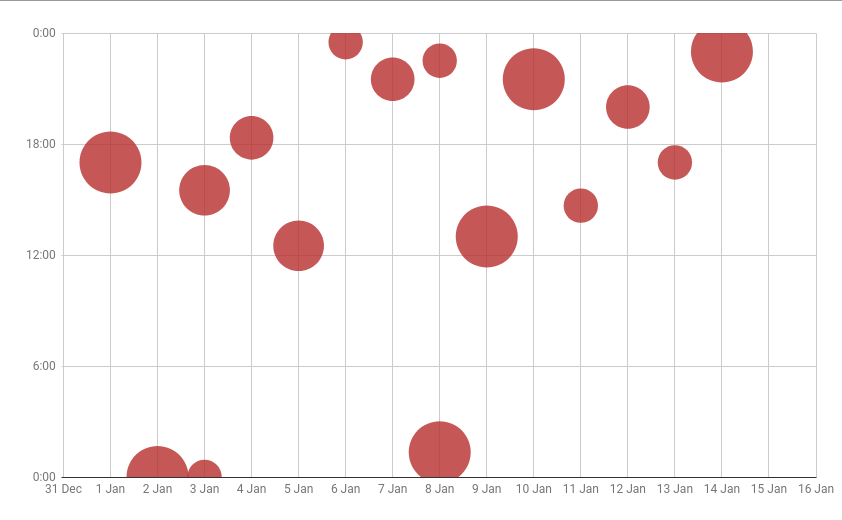
You might say I’m a bit of a numbers guy—or, in the parlance of our times, a fucking nerd.
The Mamas and the Fracas
Somewhere on the other end of the Web, as I recently learned, lies the mommy blogosphere. It’s a sprawling realm, comprising millions of individual websites, collaborative blogs, and Instagram profiles publishing content on a wide array of topics related to motherhood (and fatherhood). It covers everything from thoughts on swearing at home to seeing Magic Mike, and, of course, the phenomenon of mommyblogging itself. (The term itself is controversial; there are those who take pride in the label as well as those who decry it as yet another way to reinforce notions that nurturers are women and bloggers are men.)
The commercial side of it is a multi-billion-dollar industry in its own right, supported by book promotions, product sponsorships, and—of course—ads. Big Mama is connected. Big Mama is monetized. Big Mama wants you to see her baby pictures. And like all great forces of the Internet, she’s both celebrated—as a boundary-defying, taboo-breaking outlet for proud mothers to share their personal experiences and advice—and vilified—as an ethically-dubious way to profit from a child’s private moments.
What Big Mama is not, as far as I can tell, is obsessively quantified and data-driven. Imagine my surprise, then, when I discovered that there is one topic in which the mamasphere shares my enthusiasm for hardcore data-viz proliferation: baby names.
Toms, Dicks, and Harrys
Few things have so completely saturated the blogosphere as have baby names.
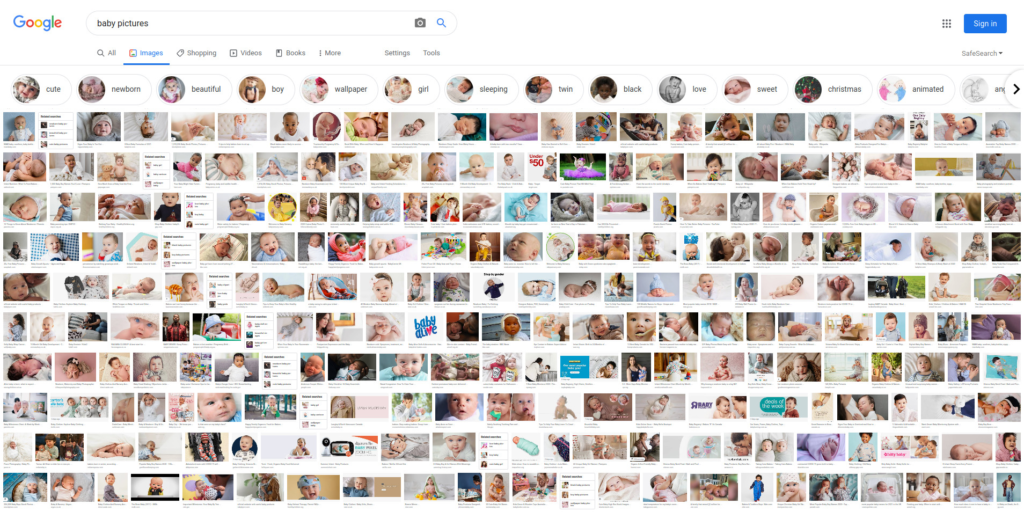
Many of the blogs I went through while reading up for this post had an article along the lines of “how I named my baby,” some with helpful graphics. Scary Mommy has a whole section dedicated to baby names with lists spanning cultures and centuries, although some of its etymologies are dubious at best. (No, “Barde” is not a “Chinese moniker” that means “someone who sings ballads.” It’s “bard” with an E.) Searching “baby names” on Google turns up a billion or so results from family resources, government entities, and ever-so-helpful corporate blogs. Even the Social Security Administration gets in on the act, digging through its venerable database of … uh, everyone … to provide tables of name popularity by year.
In any case, it’s an understandable subject to obsess over. Names are labels to our identities and wield immense power in mythologies and traditions the world over. These beliefs are still palpable today, from the fairy tale of Rumpelstiltskin to the many English Bible translations that euphemize the tetragrammaton—and all its power—into a simple, small-caps “Lord.” (Arthur C. Clarke’s “The Nine Billion Names of God” is a modern take on a tradition as old as history; it’s also simply one of my favorite sci-fi short stories.)
The topic has been debated in sociology as well. Some research claims to find that a person’s name can have real effects on their life. They cite such effects as the Portia Hypothesis, which states that female lawyers with traditionally masculine-sounding names are more likely to become judges. Others—like the 2005 pop-sociology bestseller Freakonomics—say otherwise.
Miles Per Hour and Hours Per Hour
And digging into baby name trends does produce some fascinating results.
Some naming trends carry the unmistakable influence of pop culture, which gave rise to the Bellas and Jakes of two decades ago and the Finns and (somewhat premature) Daeneryses of the last. On the other hand, the number of children named “Isis” dropped precipitously after a certain terrorist organization started taking over swathes of the Middle East.
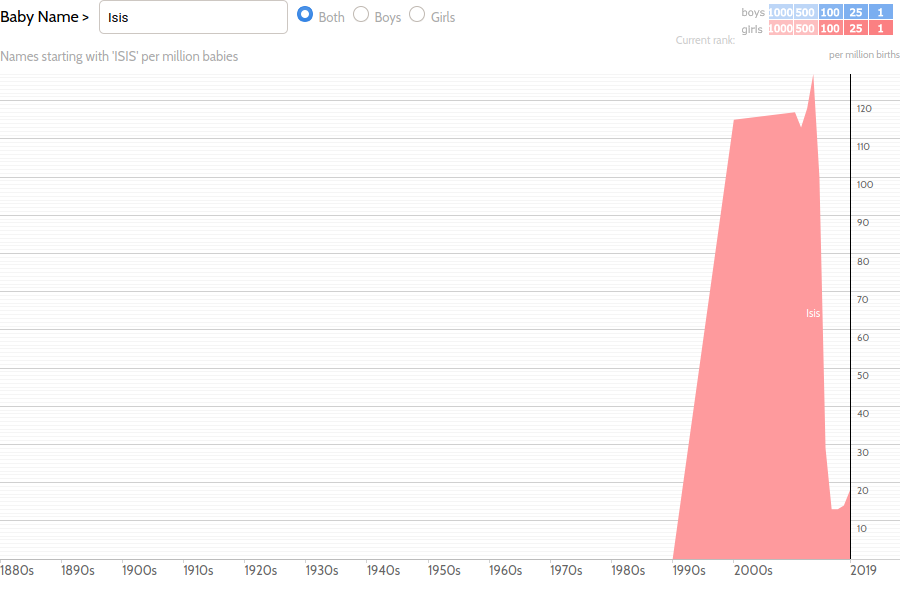
Other trends are a little harder to pin down, such as the recent discovery that a lion’s share of baby boy names all end in the letter N.
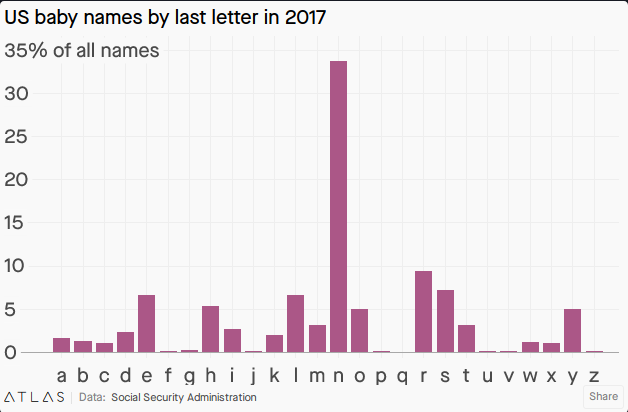
Quantifying and graphing these trends can really give insight into the speed at which these things move.
This last chart inspired me to dig a little deeper into some of the more temporary fads. Of the months of the year, May, June, July (as “Julie,” which I can only assume is a typo), and August are reasonably common names. Take a look at the years in which these monikers were common:
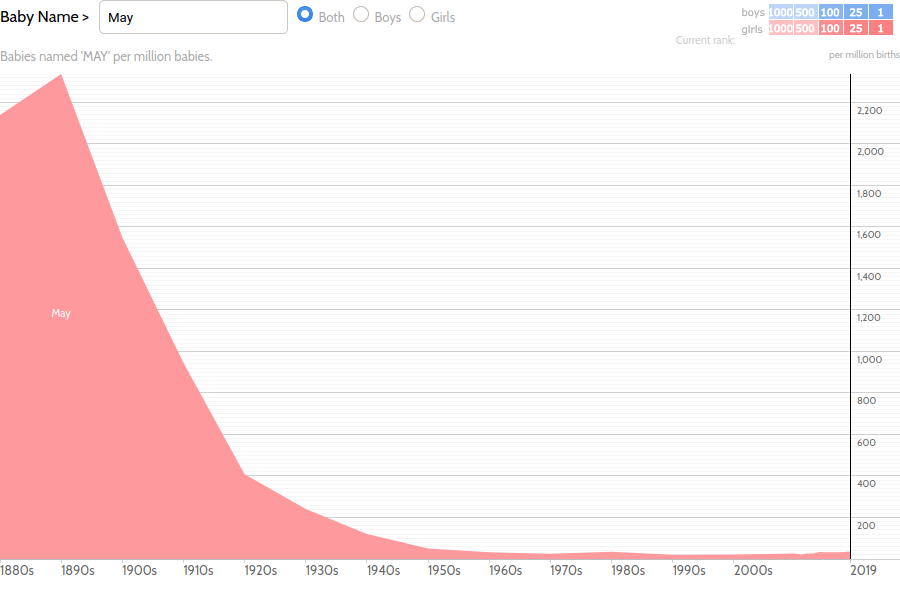
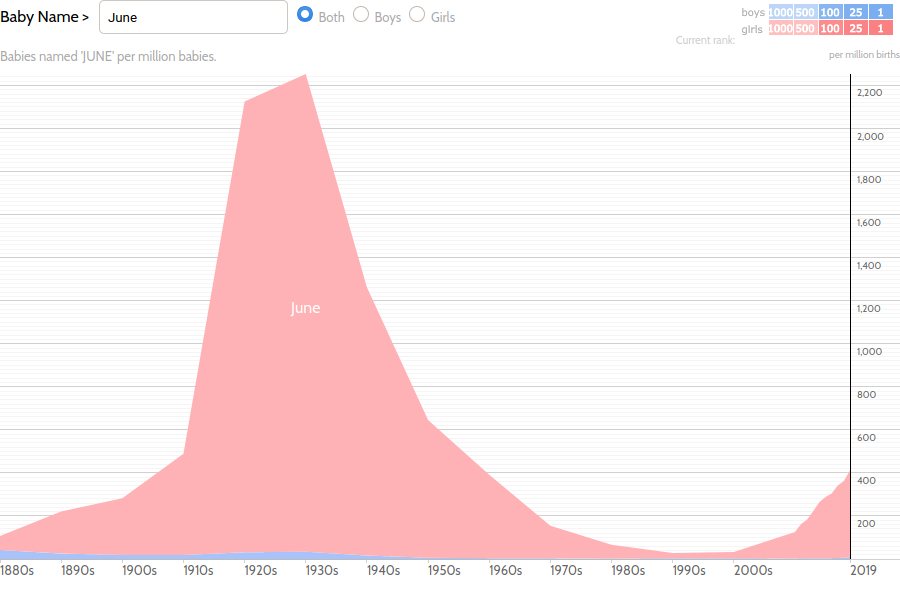
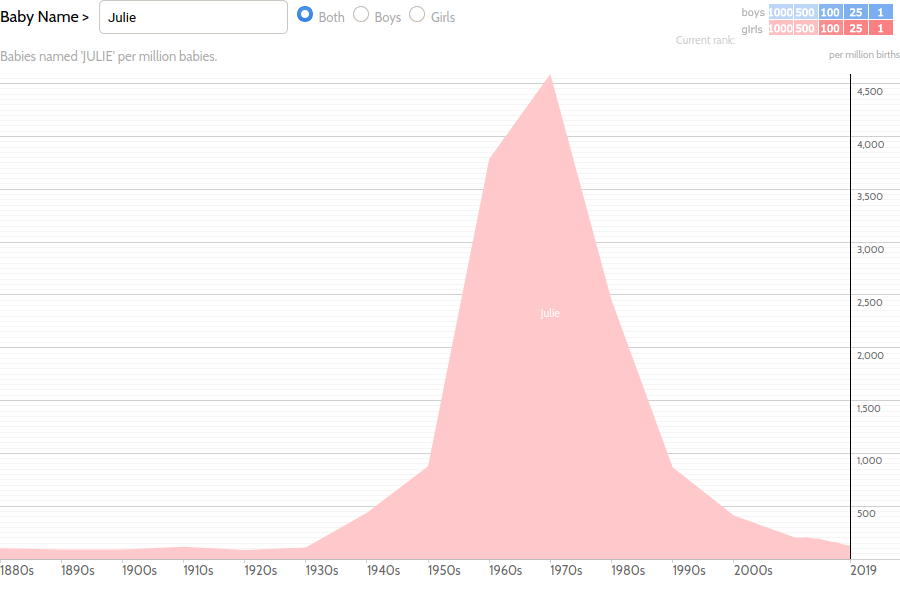
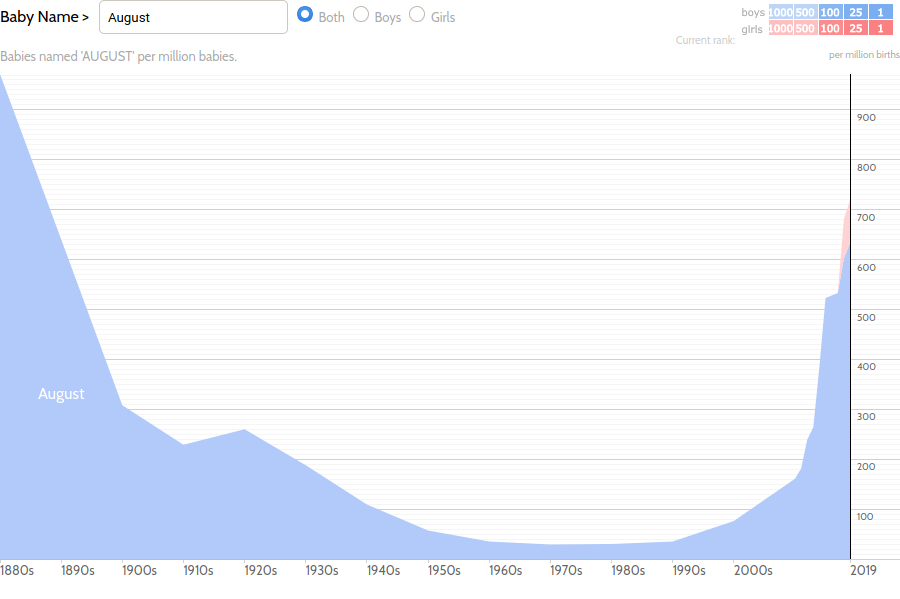
A clear pattern emerges: as the months of the year progress, so do the decades in which they are popular as a name. “May” was most popular around 1890, “June” around 1930, “Julie” around 1970, and “August” around 2010. (The latter was also coming off a craze at the end of the 19th century, which makes sense as the months tend to repeat themselves.) Evidently, months become names at a rate of about one month every 40 years, or 0.002.
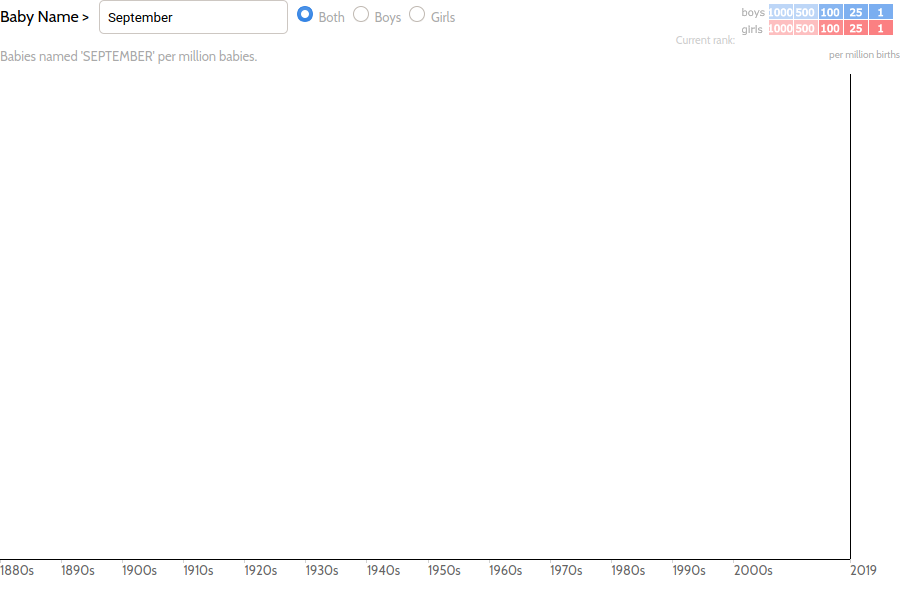
-
1 Comment on The Septembers of Tomorrow: Baby Name Trends Are Relentless and Dimensionless